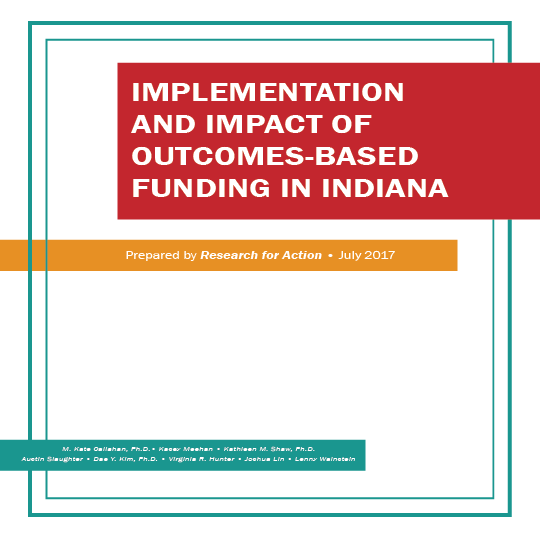Outcomes-based funding (OBF) is a term used to define state and system-level higher education funding policies linking public higher education dollars to key student outcomes such as credit completion, retention and graduation (Snyder, 2016). Outcomes-based funding models have evolved from traditional approaches to public higher education funding, including base-plus funding, enrollment-based funding, and early versions of performance-centered funding (Hearn, 2015). Within the past decade, OBF policies have become increasingly prevalent and now exist in some form in about 30 states (Harnisch, 2011).
Research for Action (RFA) has conducted comprehensive, mixed methods research on the development, implementation and effects of robust OBF policies in three states: Indiana, Tennessee, and Ohio. This brief highlights the most policy-relevant findings of our work in Indiana.
(Revised February 2017)











